How to propagate an arrowhead plant – a step-by-step guide
Discover how to take arrowhead cuttings and bolster your plant collection for the new year

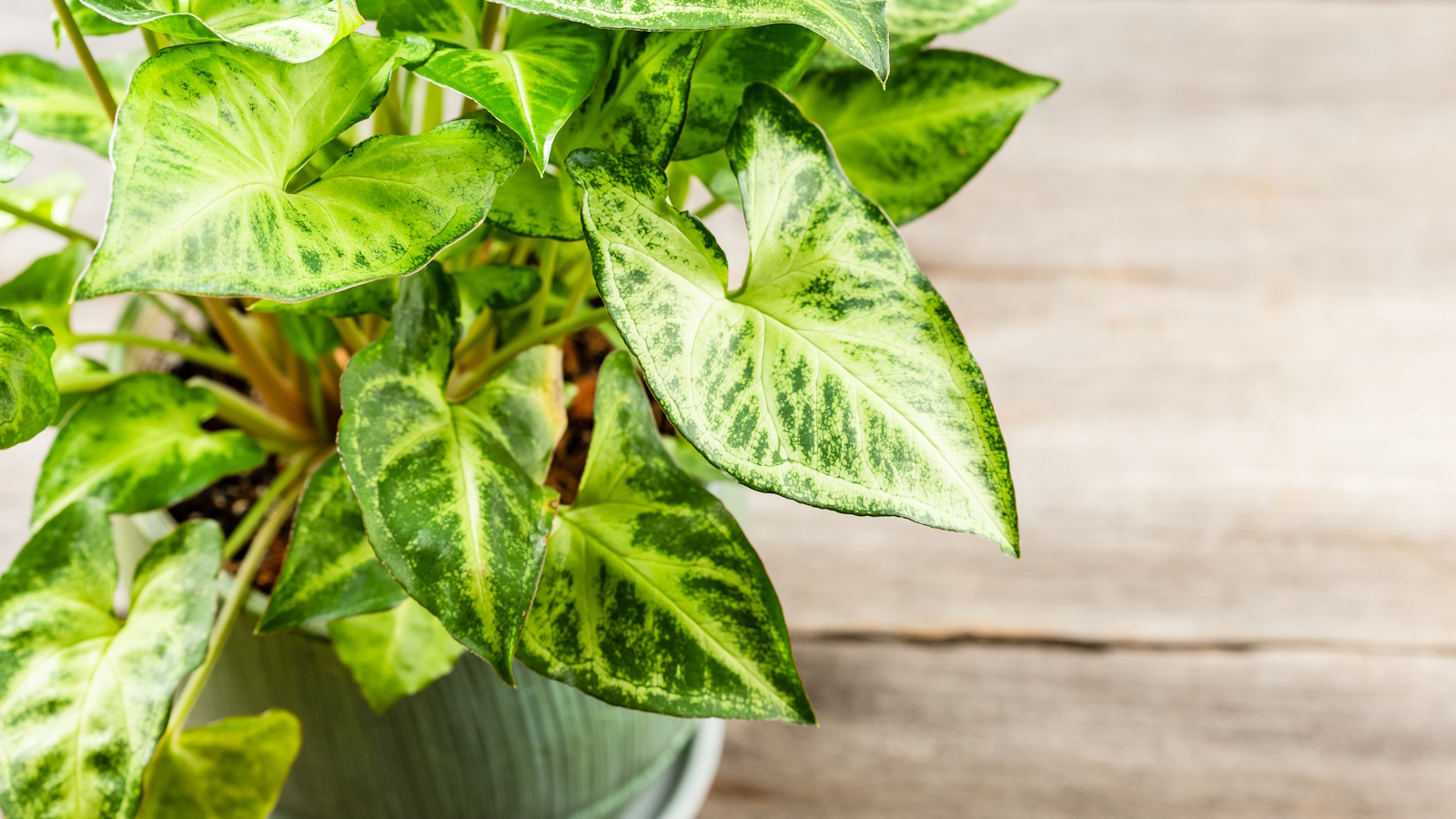
Design expertise in your inbox – from inspiring decorating ideas and beautiful celebrity homes to practical gardening advice and shopping round-ups.
You are now subscribed
Your newsletter sign-up was successful
Want to add more newsletters?

Twice a week
Homes&Gardens
The ultimate interior design resource from the world's leading experts - discover inspiring decorating ideas, color scheming know-how, garden inspiration and shopping expertise.

Once a week
In The Loop from Next In Design
Members of the Next in Design Circle will receive In the Loop, our weekly email filled with trade news, names to know and spotlight moments. Together we’re building a brighter design future.

Twice a week
Cucina
Whether you’re passionate about hosting exquisite dinners, experimenting with culinary trends, or perfecting your kitchen's design with timeless elegance and innovative functionality, this newsletter is here to inspire
Arrowhead plants, also known as Syngonium podophyllum, are a popular and low maintenance houseplant, with beautiful, pointed foliage. What is great about arrowhead plants is that they are one of the easiest houseplants to grow from cuttings.
When kept as a houseplant, arrowheads can grow up to two meters, and typically have green and white foliage. Different varieties of arrowheads have different shaped leaves. The age of the plant also depicts the shape of the leaves; shoots in adult plants can even be oval or elliptical shaped.
If you are planning to propagate your arrowhead plant, the first step is to gather your essentials. A healthy parent plant, clean pruning shears, a small pot with well-draining soil, and a propagation container is all you'll need to carry out this process effectively. These can all be added to your houseplant care kit for future home growing.
How to propagate an arrowhead plant in 3 simple steps
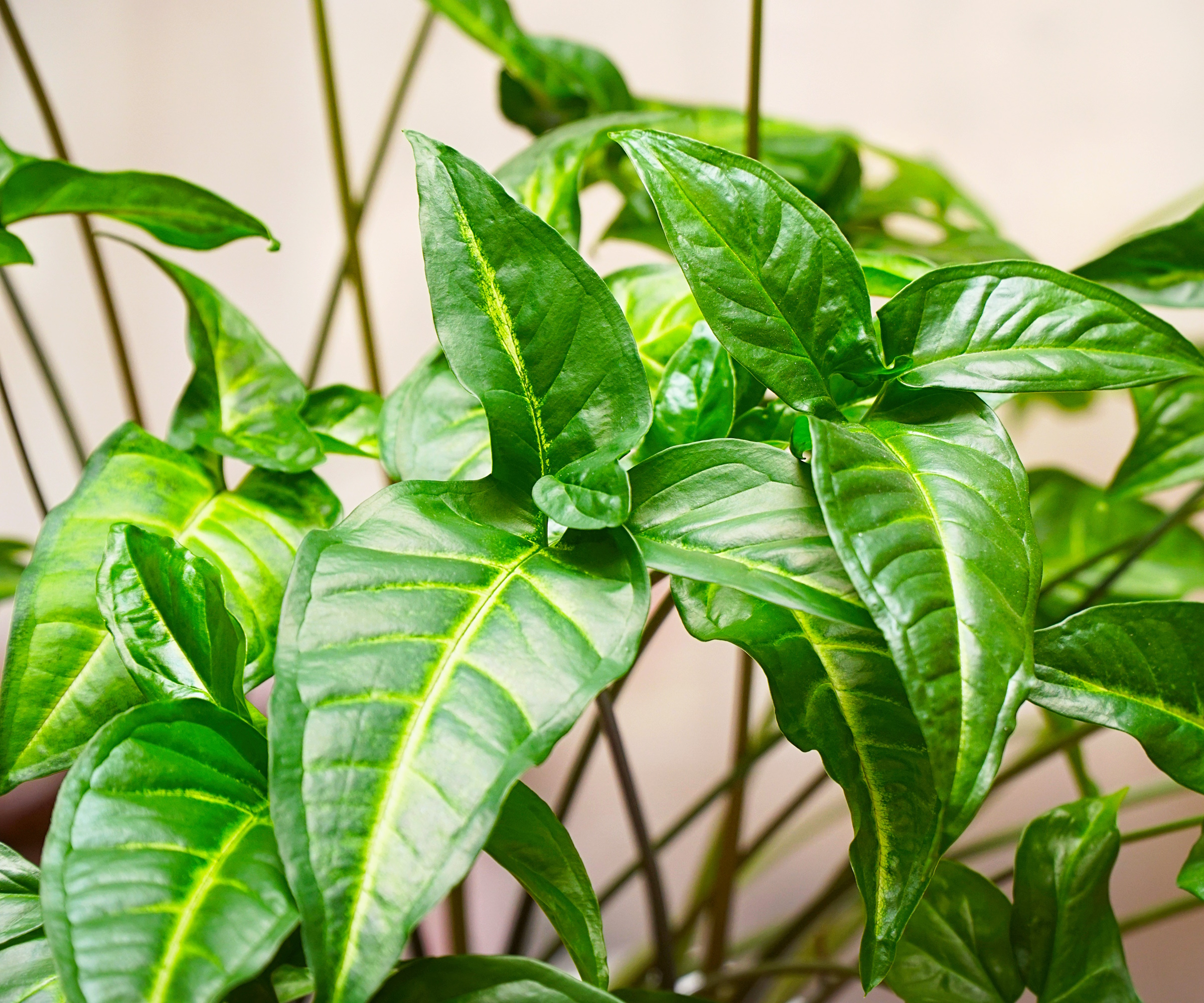
Follow these tried-and-tested steps to propagate an arrowhead plant, and multiply your houseplant collection for free.
1. Selecting and preparing cuttings
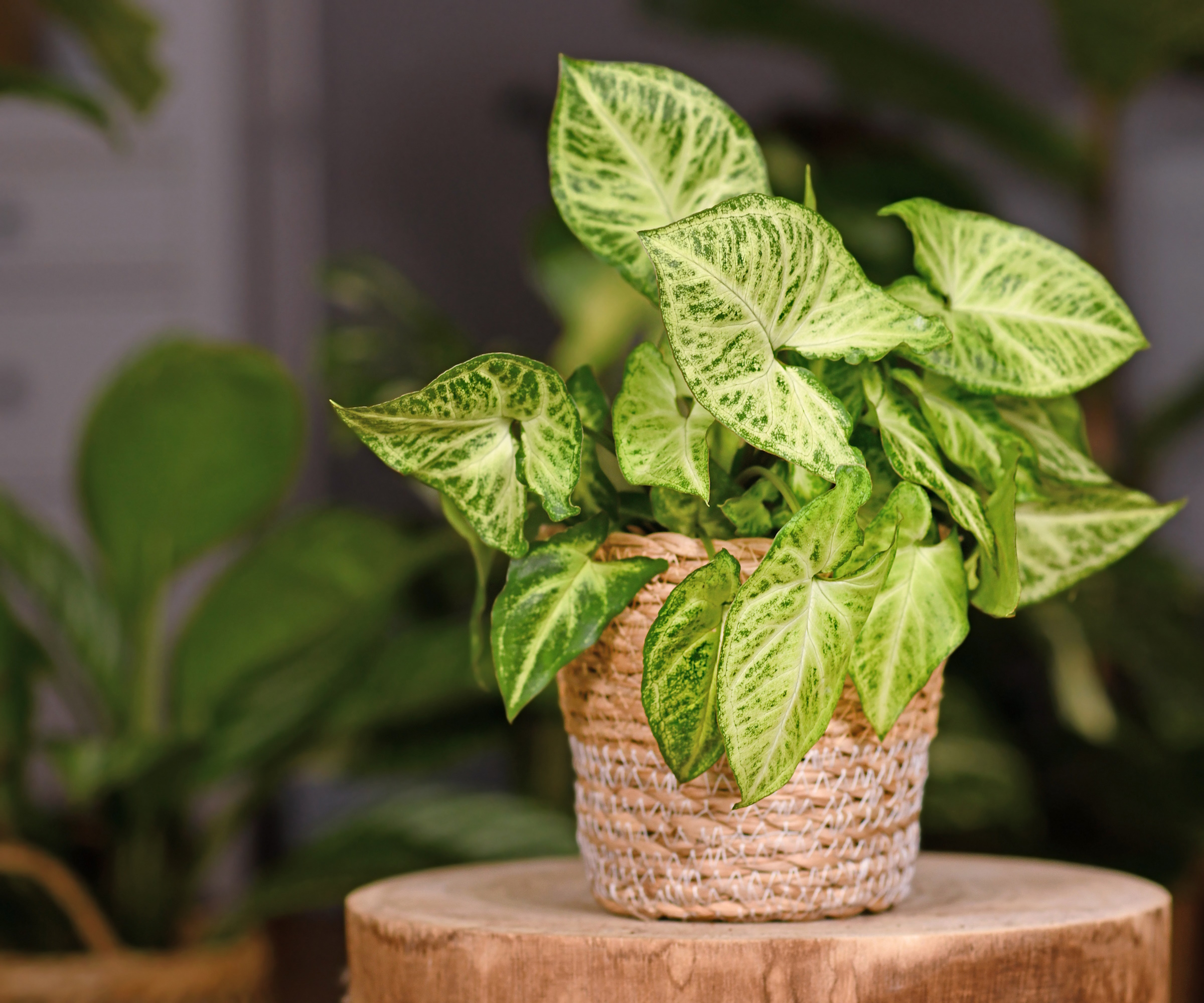
The first stage in propagating an arrowhead plant is to carefully select and prepare the right cuttings for the next growing season.
‘Begin by selecting a healthy parent plant,' says plant expert Justin Hancock. ‘Using sharp, sterilized scissors or pruning shears, cut a stem with at least two nodes for submersion in water or soil.’
Nodes are points where leaves attach to the stem. Remove any excess leaves to focus energy on root development.
Design expertise in your inbox – from inspiring decorating ideas and beautiful celebrity homes to practical gardening advice and shopping round-ups.

Absolutely passionate about plants (indoors and out), Justin is a consumer horticulturist who’s been getting his hands dirty in the industry for more than 25 years. Before joining the Costa Farms team 2013, he was a garden journalist and broadcaster on local and national networks.
2. Initiating rooting
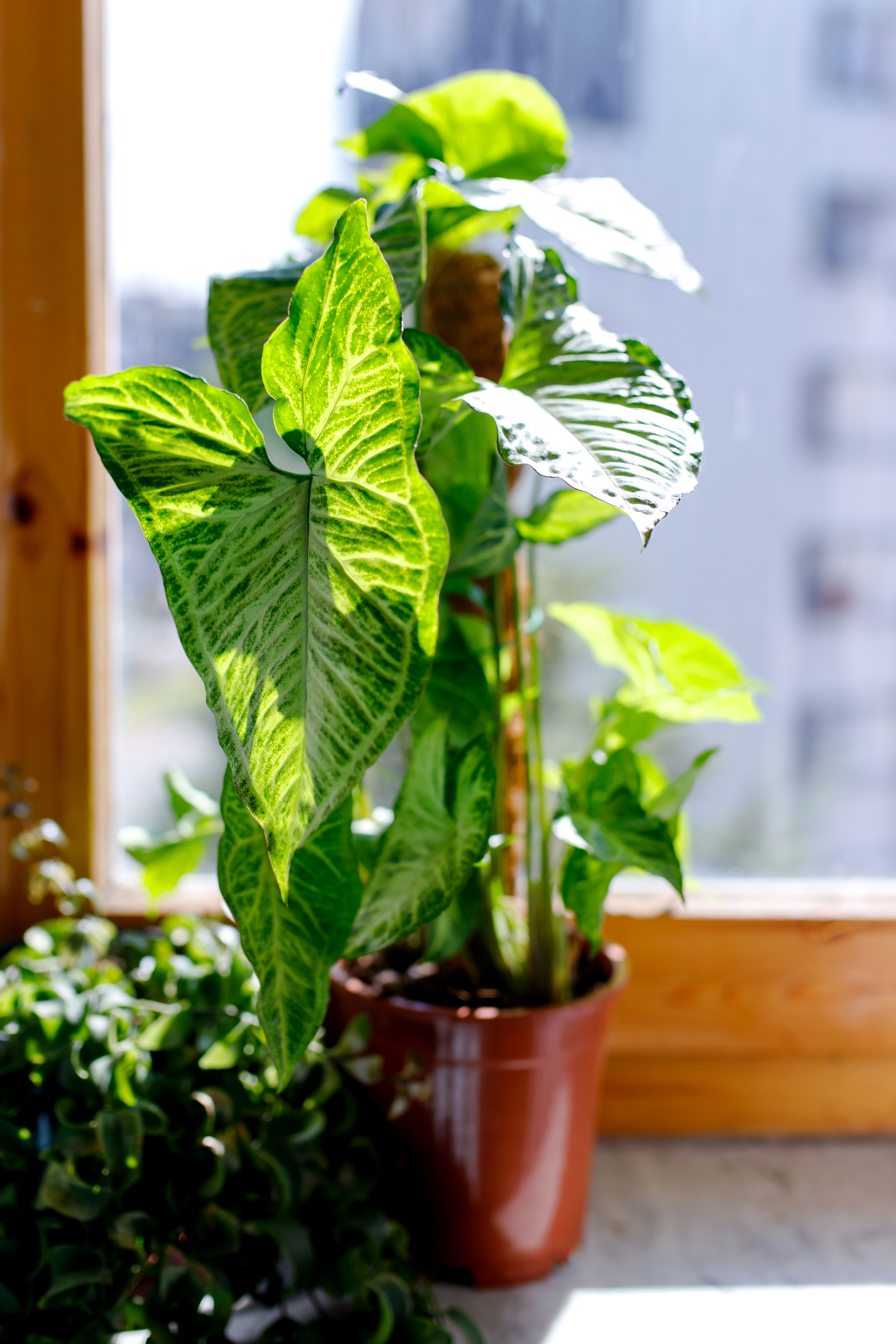
Once the cuttings are obtained, they should be placed in a jar of water or planted directly into moist potting soil. Throughout this process, it is essential to keep the cuttings in a warm and humid environment while avoiding direct sunlight.
If you decide to root your arrowhead cutting in water, place the cutting in a jar of water, ensuring that at least one node is submerged. Change the water every few days to prevent bacterial growth.
For rooting in soil you can plant the cutting directly into fresh potting compost. Ensure the node is buried in the soil, and keep the soil consistently moist but not waterlogged.
Another optional tip is to dip the cut end of the arrowhead plant in rooting hormone such as Dr. Earth Organic 2 Starter & Transplant Fertilizer from Amazon, which can encourage faster root development. For either process, initial roots will often begin appearing within a week. You should see stronger roots developing after a month.
3. Transplantation
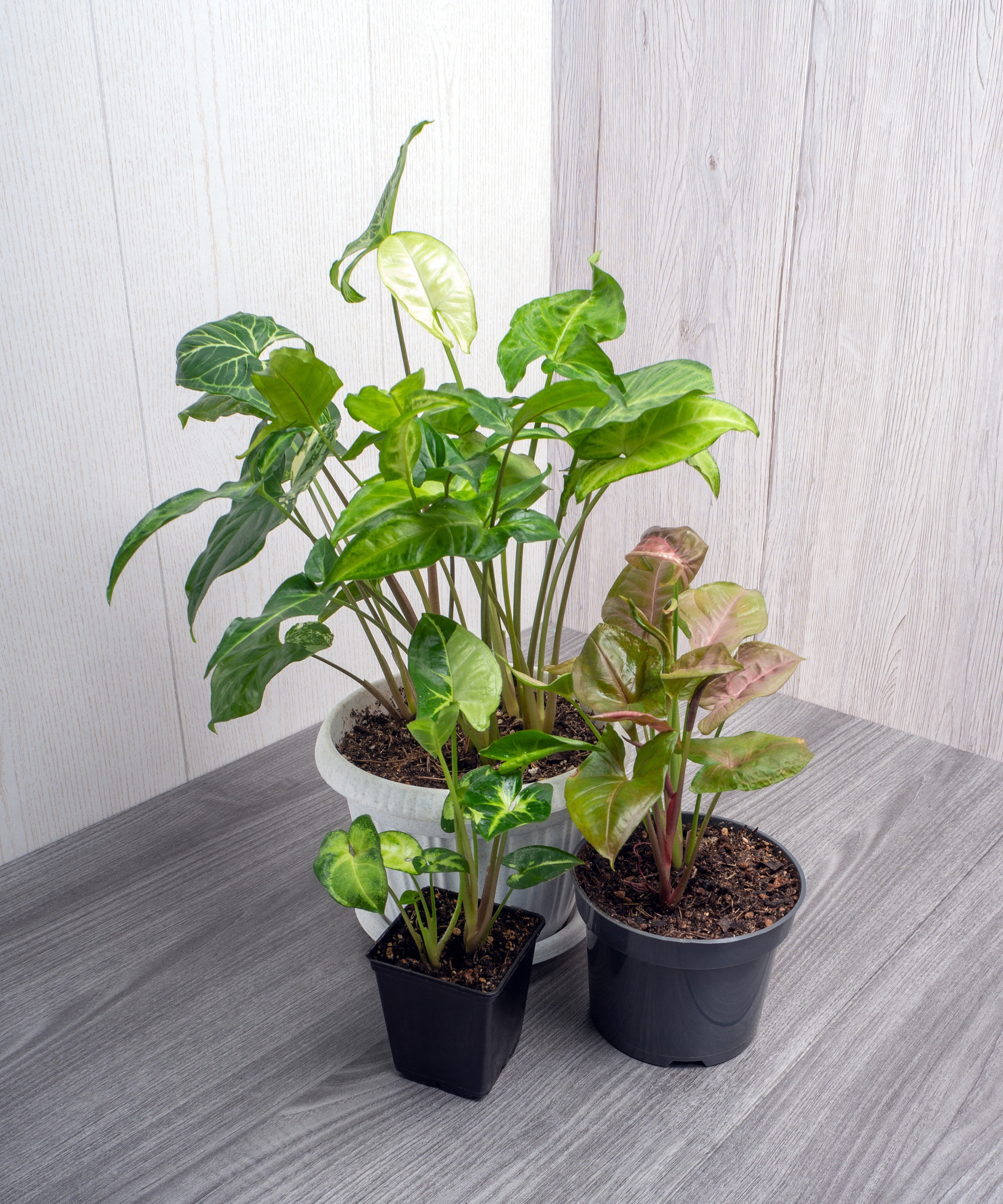
According to Christine Tobar, owner and founder of Botanicoeur, after the roots have strengthened and 'once the arrowhead plant has a robust root system, you can transplant it'.
Transplant your arrowhead plant into a larger pot with regular potting mix and care for it as you would a mature arrowhead.

Christine is the owner and founder of Botanicoeur, a plant interior design company based in Baltimore County, Maryland. She started Botanicoeur in 2022 due to her love of plants and interiors. Christine is a huge proponent of mental health awareness as plants are an easy, natural way to boost your mood and productivity in your home.
Optimal growing conditions for arrowhead plants
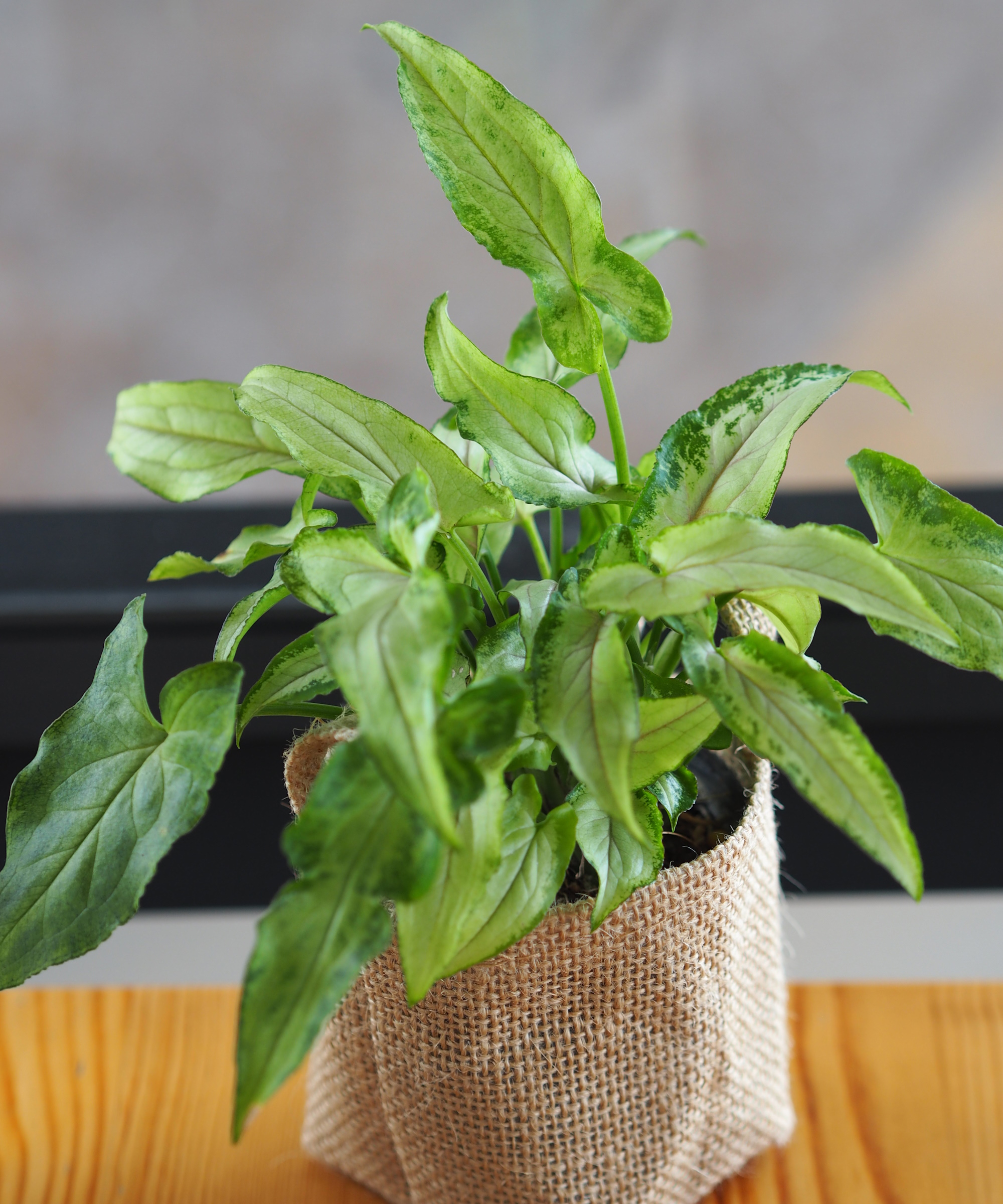
Arrowhead plants tend to prefer being in bright areas but not in direct sunlight. It is important to note what variety of arrowhead plant you have, as that may determine how much sunlight it needs.
For example, arrowheads with light-colored leaves will need more light to photosynthesize for energy and growth. Arrowheads with a more full, greener coloration can grow in a less bright area.
Maintaining the right temperature is also essential for arrowhead plant growth. Arrowhead plants require a temperature between 59-68°F, and will struggle if the temperature falls outside of that range.
Ongoing arrowhead plant care
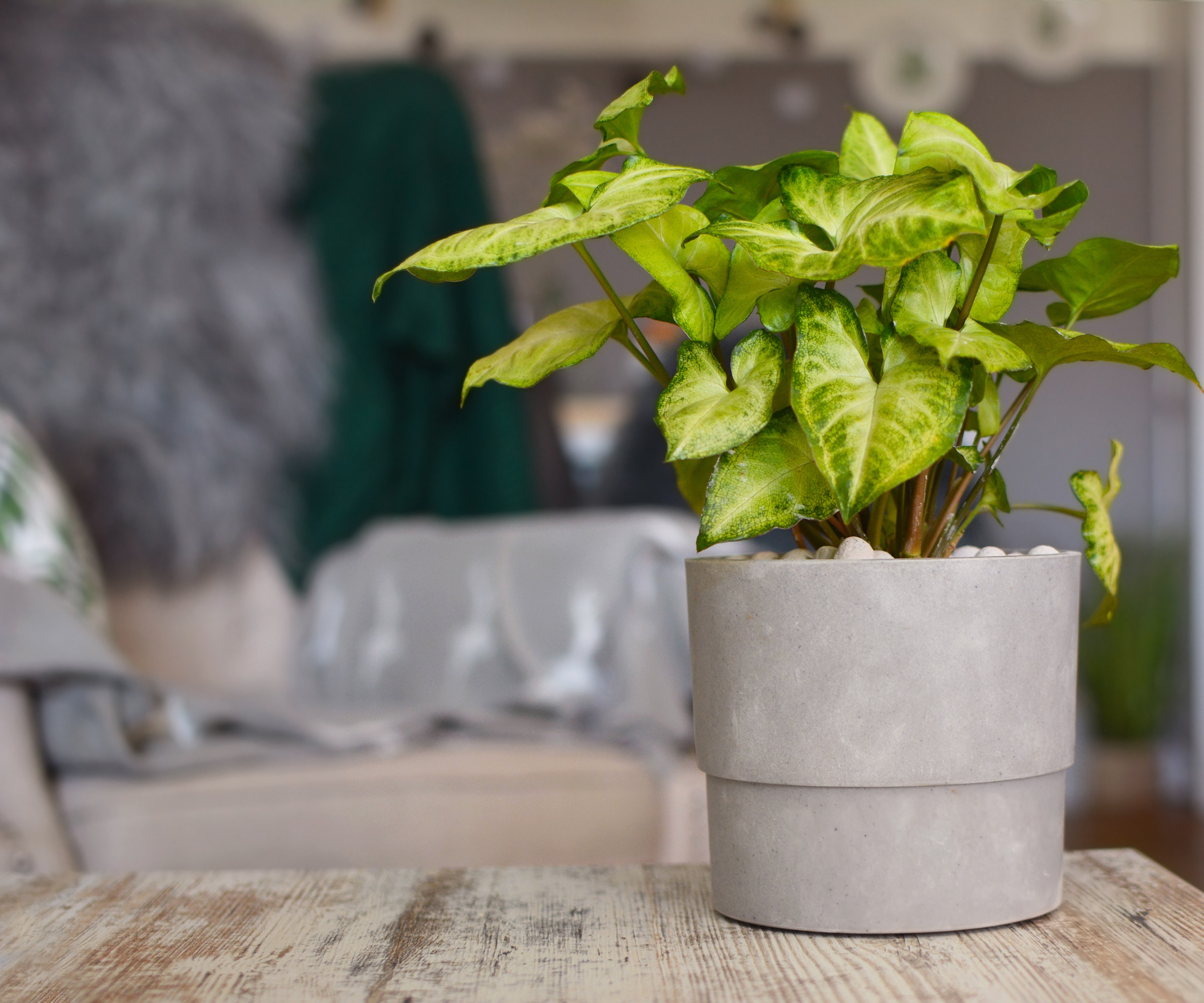
Regular monitoring and maintenance of your plant cuttings will be crucial for their successful growth. As they develop new roots and begin to establish themselves as independent plants, providing adequate moisture and nutrients becomes essential for their well-being.
Indoor plant expert Zia Allaway suggests establishing a consistent watering schedule. Allow the top inch of soil to dry out before watering - consistency is key for ensuring your plants' growth. You will also need to maintain a high level of humidity as part of your ongoing plant care. Misting the leaves with the Hula Home spray bottle from Amazon filled with lime-free water will increase the humidity promoting healthy plant growth.

Zia Allaway is a garden book author, editor, and journalist. She has also written books for the Royal Horticultural Society and Dorling Kindersley publishers, including Eco-Gardening, Compost, Low Maintenance, Practical House Plant Book, Practical Cactus & Succulent Book, Indoor Edible Garden, What Plant Where, and the Encyclopedia of Plants and Flowers.
FAQs
How do you fix a leggy arrowhead plant?
If your arrowhead plant is starting to look leggy, then you know that it needs to be pruned. Ideally this should be done with pruning shears or scissors and you will cut back the long stems just above the leaf node as this is where new shoots will emerge.
By following these steps, you can successfully propagate your arrowhead plant and enjoy the beauty of new, thriving additions to your plant collection.

Seraphina is a contributing editor at Homes & Gardens, writing Solved features on organizing and storage. She loves to decorate and also grow her own produce from her home in London. Her previous experience includes working at Women's Health and Fabulous Magazine.